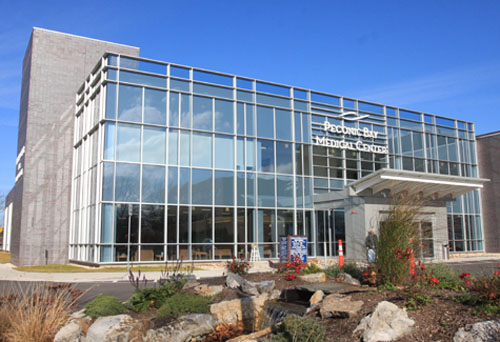Health: The many benefits of a support group

Sitting around a conference table at Peconic Bay Medical Center on a recent Monday evening, a group of eight individuals met to discuss experiences with a somewhat common disorder — epilepsy.
A person who has two or more “unprovoked” seizures is considered to have epilepsy. While many factors, such as a high fever or lack of oxygen, can cause seizures, those happening without such causes are attributed to epilepsy.
One in 10 adults will suffer from a seizure sometime during their lives, according to the nonprofit Epilepsy Foundation, and epilepsy is the third most common neurologic disorder in the United States after Alzheimer’s disease and stroke.
Group members, ranging from sufferers’ aunts and grandmothers to those living with the disorder themselves, each gave advice based on their own experiences — offering fellow group members a common sentiment: “You’re not alone.”
“We’re out here on the East End, and it can feel like we are alone. It is very hard sometimes,” said Charlie Peterson, who has been dealing with epilepsy for most of his life.
He started the Riverhead group so people could seek support from local community members.
Learning from those immediately affected by epilepsy is often just as important as hearing from health professionals, he said.
In people with epilepsy, instead of the brain’s sending electrical energy in an orderly manner, brain cells keep firing, causing a surge of energy through the brain. This surge often results in a seizure, according to the nonprofit. More than six different types of seizures are commonly associated with epilepsy and can include convulsions, muscle spasms and altered consciousness, but they can also be just odd sensations and brief episodes of staring into space, according to the foundation.
A woman named Charlene was visiting the group for the first time, seeking information on how to help her 6-year-old grandson, who was recently diagnosed with epilepsy.
He had a pacemaker-like device implanted in his chest, a treatment known as vagus nerve stimulation, something most group members had experience with themselves. Those with the implant hold a magnet-like tool up to their chest to activate the treatment, which delivers electrical stimulation to the brain to help when they feel a seizure coming on.
“He calls it his magic wand, and keeps it in his pocket,” Charlene said, adding that her grandson has been having trouble getting the device out of his pocket in time to activate it.
A man named Patrick, who volunteers with a North Fork fire department, offered some advice, noting that the magnets can be altered and set into bracelets, so that all the boy would have to do would be to hold is hand to his heart.
Patrick himself had dealt with the very same issue, he said.
Other topics discussed during the meeting included medications, diet and surgery options, along with some of the personal challenges each person had dealt with in recent weeks.
The support group is free and open to all. For more information contact Mr. Peterson at 740-1476 or 728-2804.
Got a health question or column idea? Email Carrie Miller at [email protected]. Follow her on twitter @carriemiller01.








